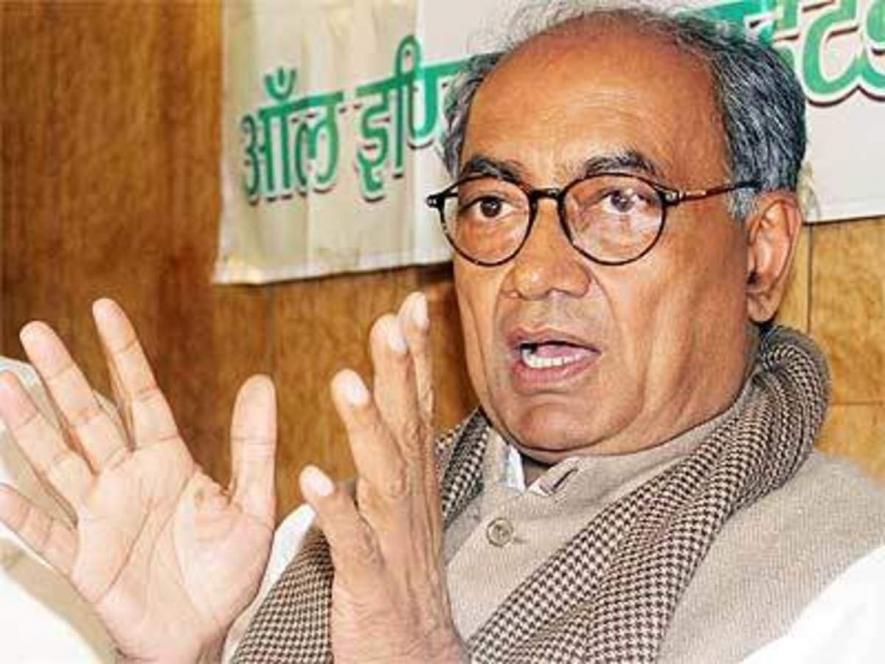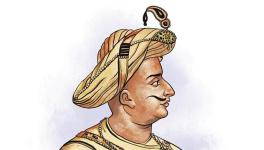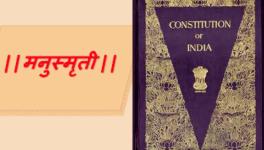Nehru's Secularism Saved India: Former CM Digvijay Singh

Image Courtesy: PTI
Bhopal: At an event in the city, veteran Congress leader and two-term former Chief Minister of Madhya Pradesh Digvijay Singh showered praises on the first Prime Minister of India.
"After Partition, India was more polarised than it is today. But the secular ideas of the then Prime Minister Jawaharlal Nehru reduced bitterness (between communities) and peace prevailed. But, I wonder, if such a polarisation continued till today, I don't know where the country would stand,” he said.
Singh was speaking during the book launch of Bharat Ke Pradhanmantri, penned down by well-known journalist and author Rasheed Kidwai. Apart from Digvijay Singh, poets, social activists, journalists and political leaders participated in the book launch which took place on November 17 in Bhopal.
Sahitya Akademi winning poet Rajesh Joshi was heading the event organised under the banner of Sanskritik Morcha of Bhopal led by social activist Rajendra Kothari.
TRACING THE TENURE OF 15 PMs
Referring to Kidwai's book which scrutinises the making of all 15 Prime Ministers India has seen in its 74 years of democracy with a hawkeye, Singh shared a number of anecdotes based on his experience right from Indira Gandhi to Manmohan Singh. "Out of 15 PMs, 13 were from the Nehru-Gandhian ideology. Atal Bihari Vajpayee was also more inclined towards Nehru-Gandhian ideology rather than RSS's Golwalkar," he claimed.
Speaking about secularism and Congress, he said, "The secularism for which Pandit Nehru fought fiercely has now vanished from the party."
After the book launch, well-known journalists like Rakesh Dubey, Chandrakant Naidu, LS Hardiniya, Rajesh Badal and retired IAS officer Manoj Shrivastava shared their views on the importance of the book in the era of post-truth.
Advocating for the book’s educational significance, veteran journalist Rakesh Dubey said, "This book should be added to the school curriculum as it debunks the fake stories spread in the last couple of years about our prime ministers and critically examines their achievements and their weaknesses during their rule."
Among the speakers who spoke in the book launch event was Badal Saroj, labour and farmer leader of the CPI(M) who spent over three years in jail during the Congress-imposed Emergency period made some startling observations on Indira Gandhi, the lone woman Prime Minister of India.
"Indira Gandhi was the person who kept me behind bars for opposing the Emergency. But irrespective of our political differences, she was the strongest Prime Minister India has ever seen. When young independent India was grappling with food shortages, she not only liberated Bangladesh, nationalised banks, merged Sikkim in India but also gave sleepless nights to her counterpart from USA Richard Nixon," Saroj pointed out.
Outlining her weaknesses, Saroj said, "We all make mistakes, India Gandhi did too. She was to be blamed for ending the internal democracy of the Congress party. Her policies towards Jammu and Kashmir just to win four parliamentary seats are costing us even today."
Digvijay Singh, in his 30-minutes of address, also recalled his close association with former Prime Minister Rajiv Gandhi and his aim for the party. "The biggest weakness of Rajiv Gandhi was his innocence. The man who was against religious fundamentalism was ill-advised by his close aides not only in the Shah Bano case but also in the Ram Mandir issue."
"If he did not die untimely, Congress would be strong at the organisational level. He was a man of the organisation who wanted to strengthen it," he further added.
He, however, refrained from making any comment on PM Narendra Modi's seven years of rule, but ended his speech with English novelist George Orwell's quote mentioned at the beginning of the book, "The most effective way to destroy people is to deny and obliterate their own understanding of their history."
Get the latest reports & analysis with people's perspective on Protests, movements & deep analytical videos, discussions of the current affairs in your Telegram app. Subscribe to NewsClick's Telegram channel & get Real-Time updates on stories, as they get published on our website.
























